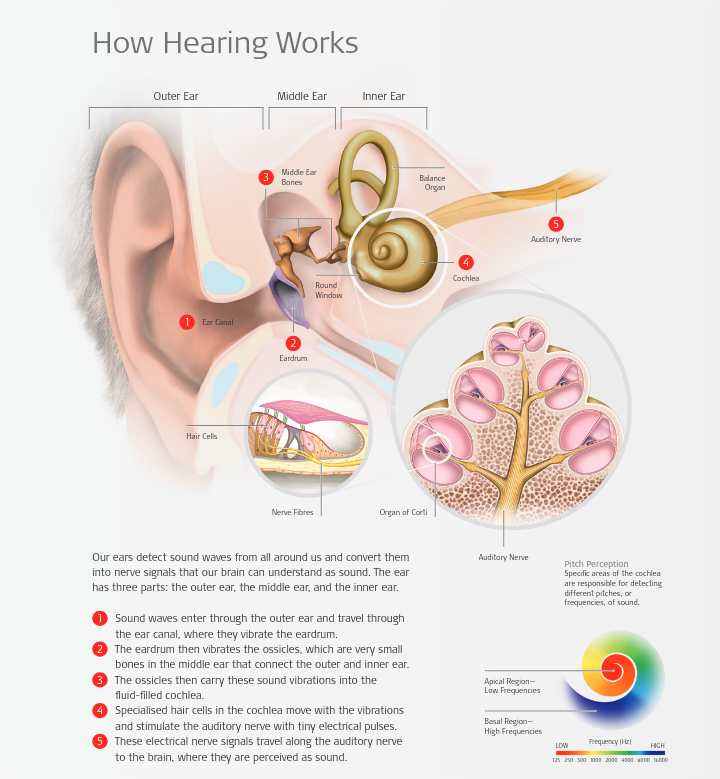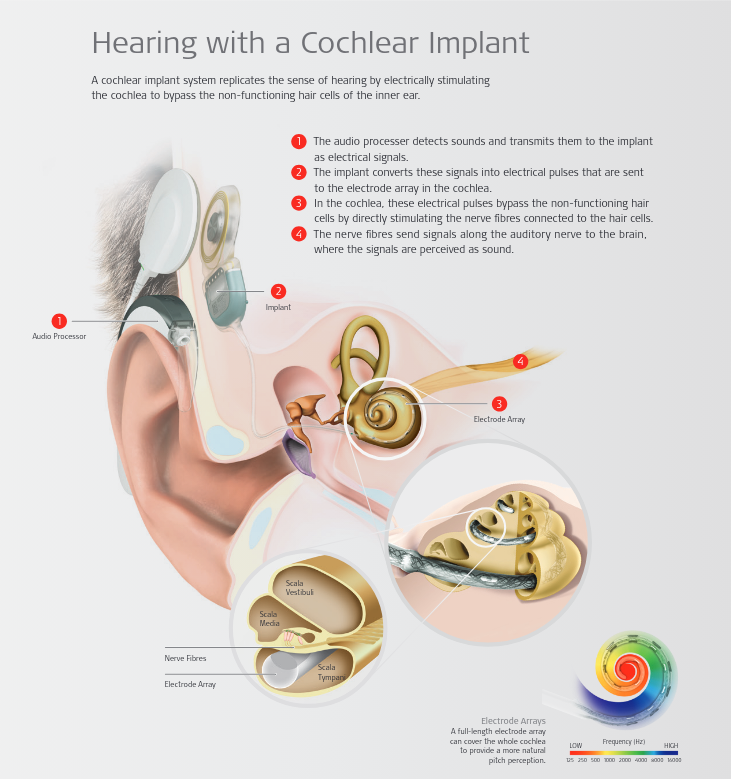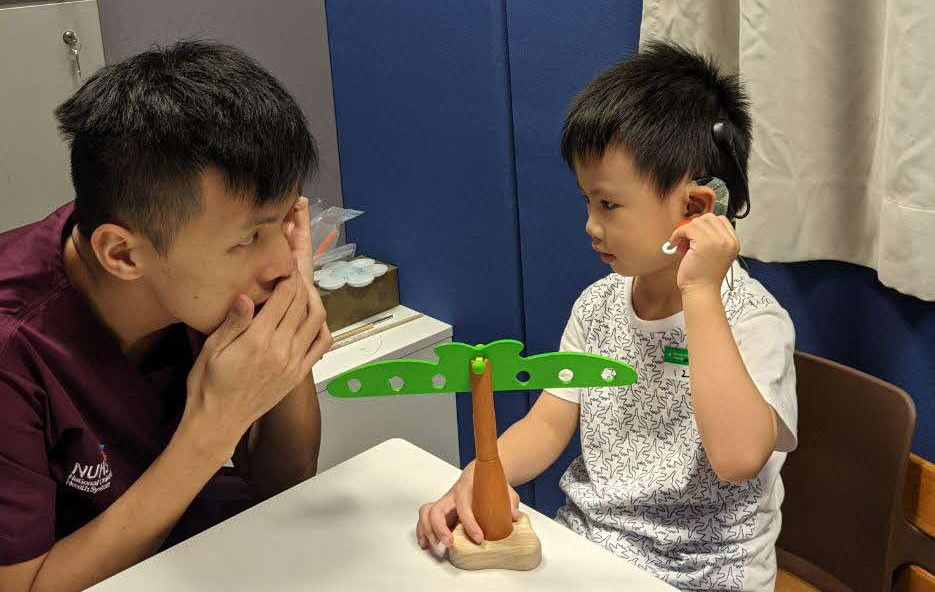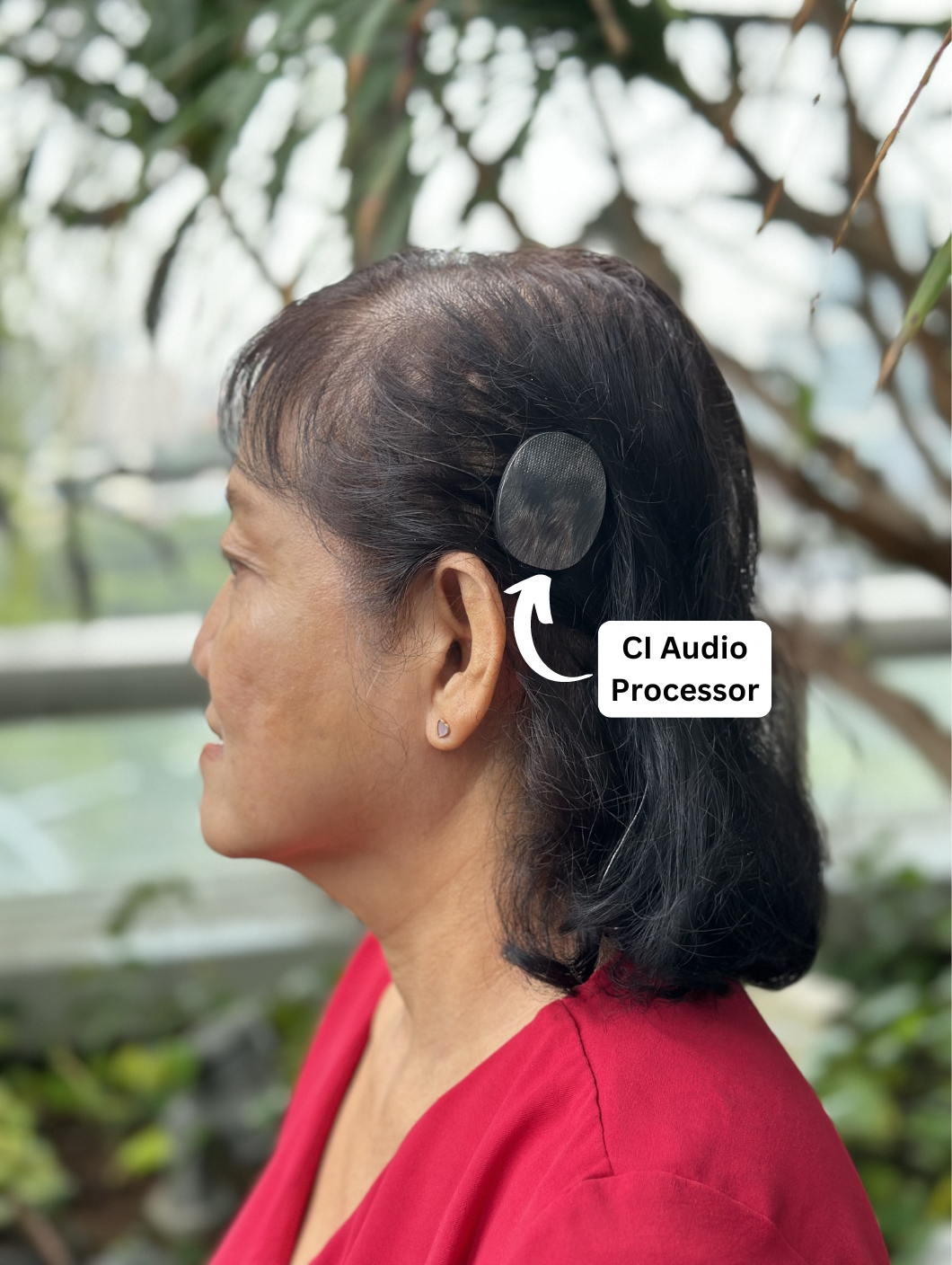The cochlear implant journey is a long-term partnership between the patients, their family members and a multi-disciplinary team which consists of the implant surgeon, the audiologist, and the speech therapist.
Before embarking on this journey, the team would discuss with patients about their daily hearing needs, hearing aid usage, medical conditions, and expectations with regards to the surgery and implant usage.
Our multi-disciplinary team would first assess the patient for suitability for cochlear implant surgery and prepare him/her on what to expect during and after the surgery.
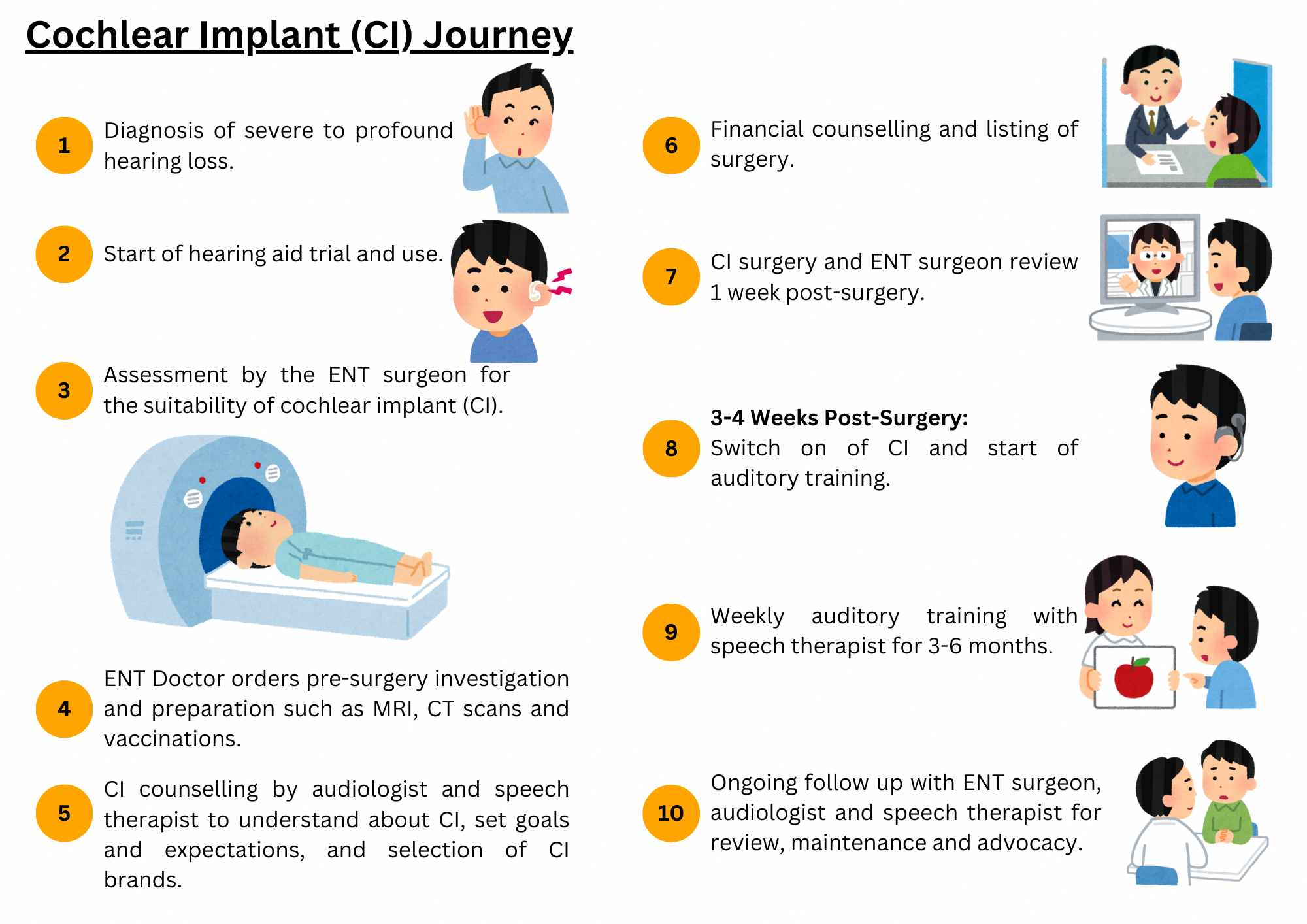
Cochlear Implant Journey Map
The Surgery: What to Expect
- Pre-Surgery:
- Comprehensive hearing, speech and balance examination and other medical examinations.
- Discussion on suitability of cochlear implant based on hearing profile, contraindication of surgery and motivation for the surgery and rehabilitation.
- Discussion of expectations and potential risks.
- MRI or CT scans of the ears and the head.
- Ensure adequate vaccination for pneumococcal disease as having a cochlear implant increases the risk for meningitis.
- Discussion and selection of cochlear implant types and brands.
- Financial counselling.
- Introduction to the rehabilitation process after cochlear implant surgery.
- During Surgery:
- The procedure typically lasts 2-4 hours and is performed under general anaesthesia.
- Placement of the implant involves making a small incision behind the ear and inserting the electrode array into the cochlear.
- The implant is usually tested after inserting to make sure it is working well, and an X-ray is done after surgery.
- There will be a head bandage applied immediately after surgery to be left on overnight.
- Most patients can go home the next day after surgery.
- Post-Surgery:
- Patients may experience discomfort and will need to follow specific post-operative care instructions.
- Initial activation of the cochlear implant occurs 2-4 weeks after surgery.
Post Surgery Follow-up: Rehabilitation Sessions and What to Expect
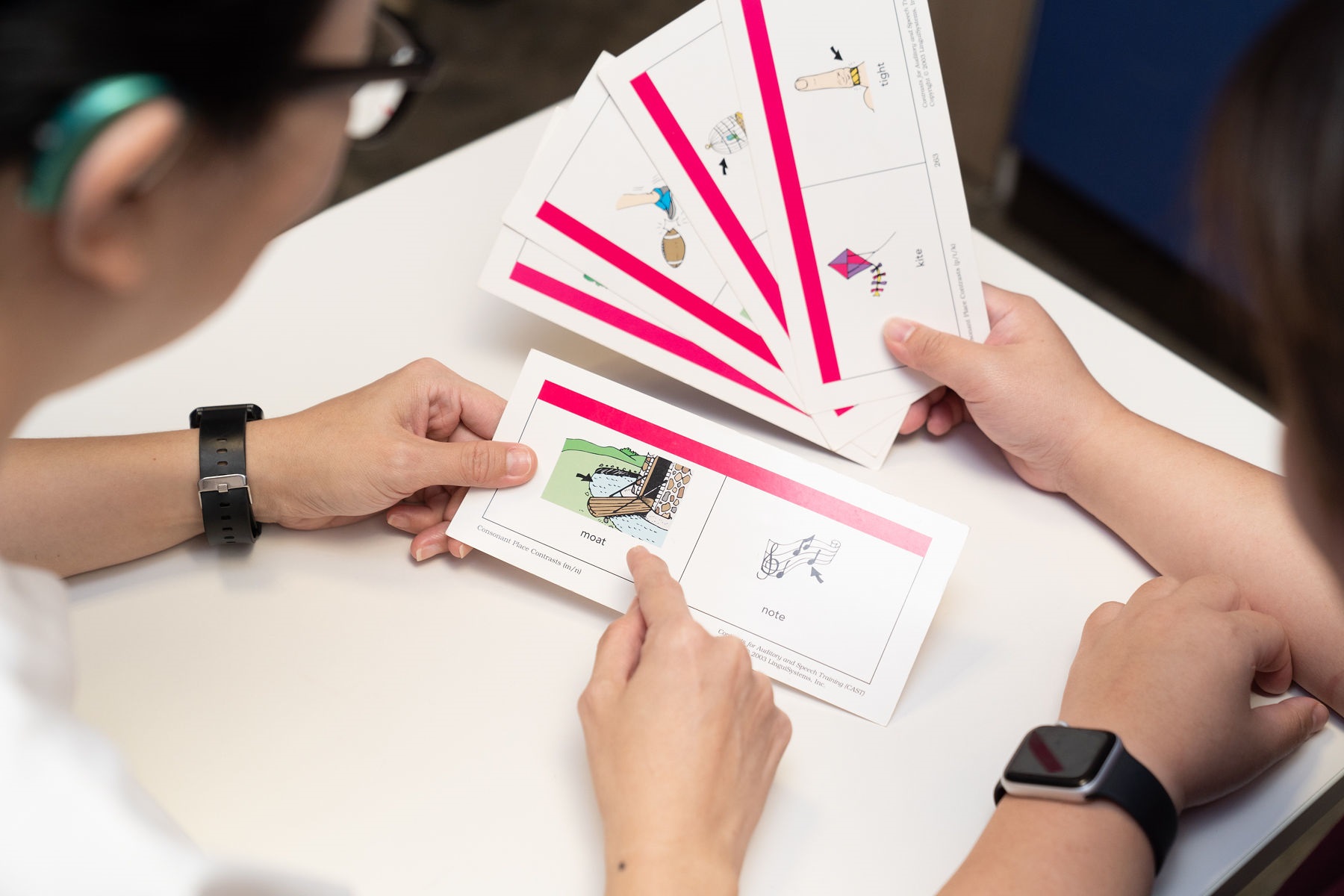
Post-surgery Aural Rehabilitation Session with a Speech Therapist
The rehabilitation process for a cochlear implant involves several stages, which aim to help patients adapt to the new sounds they are hearing and maximize the benefits of the implant. The duration and intensity of rehabilitation can vary depending on factors such as the patient's age, duration of hearing loss before implantation, and individual progress.
- Switch-on of cochlear implant
- 2-4 weeks after surgery, the audiologist will switch on the cochlear implant by connecting it with an audio processor.
- The audiologist will show the patient on how to use the audio processor and its care and maintenance.
- Follow-up with the audiologist for mapping and programming
- Several follow-up visits are required to fine-tune the implant. This process is known as mapping.
- The audiologist will test different frequencies and volumes to tailor the implant to the patient’s preference and needs.
- Weekly auditory rehabilitation with the speech therapist
- This is the most critical part of the process and involves training the brain to interpret the new sound signals.
- Some training sessions include sound detection, auditory training, listening practice and speech therapy.
- The speech therapist will also provide guidance or tips on communication skills and repair strategies.
- Patient is required to attend weekly auditory rehabilitation for 3- 6 months for optimal outcomes. Depending on their progress and needs, some patients may require longer and more frequent follow-ups.
- Regular follow-ups
- Regular visits to the audiologist and the speech therapist are necessary to monitor progress and to make any necessary adjustments to the implant settings.
- Support and counselling
- Ongoing support from professionals, support groups, and family are crucial for adapting to the implant and addressing any emotional or psychological challenges.

